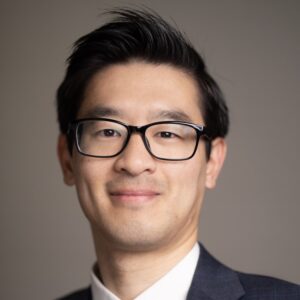Pennington, NJ – Wesley Chang, Jovan Kamcev, Jeffrey Lopez, Gioele Pagot, and Evan Wenbo Zhao are the 2025–2026 recipients of the ECS Toyota Young Investigator Fellowships for innovative projects in green energy technology. The program is a partnership between The Electrochemical Society and the Toyota Research Institute of North America (TRINA), a division of Toyota Motor North America R&D. Through the fellowships, ECS and Toyota promote innovative and unconventional green energy technologies born from electrochemical research—and encourage young professionals and scholars to pursue battery and fuel cell research.
Now in its eleventh year, the ECS Toyota Young Investigator Fellowship continues to support the next generation of scientists advancing battery and fuel cell research. This cycle marks a significant milestone: the program’s expansion beyond North America (US, Canada, and Mexico) to include two researchers based in Europe—broadening the global impact of this initiative. Including this year’s cohort, the program has supported 38 fellows with more than $1.9 million in research funding—an inspiring investment in a cleaner, more sustainable future.
2025–2026 ECS Toyota Young Investigator Fellows
Wesley Chang
Drexel University, US
Dr. Chang is Assistant Professor in the Department of Mechanical Engineering and Mechanics and Faculty Affiliate in the Department of Materials Science and Engineering at Drexel University. His research focuses on battery ultrasound.
“Ultrasonic Tomography of Sodium-ion Batteries for Depth-Resolved State-of-Health Mapping”
Dr. Chang’s fellowship project aims to develop methods enabling ultrasound-based 3D tomography for the localized state-of-health assessment of sodium-ion batteries. A Gaussian decomposition signal processing algorithm will be used to deconvolve a transmitted ultrasonic waveform into its individual electrode layer reflections. Unlike the inverse problem that has challenged accurate ultrasonic tomography in complex biological media, the hypothesis is that a Gaussian decomposition method can accurately resolve individual waveform reflections from thin, multilayered battery electrodes. The outcome is a physically accurate reconstruction of the cell stack. This signal processing method will then be applied to sodium-ion pouch cells to generate tomographs of sodium metal plating at low temperature and fast charging conditions, and to quantify variations in electrolyte wetting propagation across electrode layers. Ultimately, the outcomes will enable physically accurate, data-driven characterization of individual battery electrodes within fully assembled cells.
Answering the Fellowship Call: Motivation, Mentors, and Momentum
The overarching goal of Dr. Chang’s project is to improve battery safety. Shifting to electric vehicles is a critical component in fighting climate change and crucial to passenger safety, preventing vehicle damage, and ensuring reliable operation. Dr. Chang’s earlier work with TRINA and current collaborations with other automotive manufacturing companies and battery startups convinced him of the importance of proving that, as opposed to conventional methods, there are faster, cheaper, and more spatially resolved techniques that can be tailored for battery manufacturing quality assurance.
The ECS Toyota Young Investigator Fellowship will support Dr. Chang doing the enabling science leading to advanced battery diagnostics tools and improved battery safety. If successful, his signal processing methods could enable physically accurate tomography of batteries using ultrasound, which is a currently a limiting factor for the technique when applied to batteries. Showing how spatially resolved acoustic signals complement battery electrochemical measurements positively impacts the science community and advances the shift to electric vehicles.
Biography
Dr. Chang completed his BS (2014) and MS (2016) in Chemical Engineering at Stanford University, and PhD (2021) in Mechanical Engineering and Materials Science under Daniel Steingart at Princeton University. His PhD thesis focused on interfaces and interphases for anode-free lithium metal cells, developing a new operando ultrasound characterization and imaging technique for batteries, and fast-charging and temperature-driven electrode phase behaviors. At Princeton, Dr. Chang participated in the Scholars Institute Fellows Program, advising first-generation low-income graduate students on STEM careers. His postdoc at Columbia University involved collaborations with electric vehicle companies. From 2022–2023, Dr. Chang worked on lithium-mediated electrochemical ammonia synthesis as the Arnold O. Beckman Postdoctoral Fellow at the California Institute of Technology. He was an energy and utilities companies consultant in the past, and now regularly serves as a technical advisor to energy-focused startup companies and investment firms. He is the author of 22 articles with an h-index of 15. In 2025, he received the ACS PRF Doctoral New Investigator Award and ORAU Ralph E Powe Junior Faculty Enhancement Award, and in 2021, the ECS F. M. Becket Fellowship.
Dr. Chang joined the Society in 2019, serving as a 244th ECS Meeting Session Chair and Symposium Co-Chair for the upcoming 249th ECS Meeting.
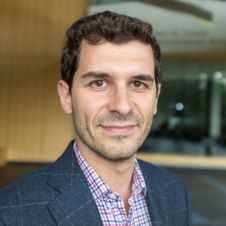 Jovan Kamcev
Jovan Kamcev
University of Michigan, US
Dr. Kamcev is Associate Professor of Chemical Engineering and Macromolecular Science & Engineering at the University of Michigan (U-M). The Kamcev Research Group has advanced the fundamental understanding of ion transport in charged polymer membranes for electrochemical applications through a combined experimental/modeling approach.
“Alkaline Stable Anion-Exchange Membranes with Ultrahigh Charge Densities and Controlled Water Content”
Dr. Kamcev aims to develop anion-exchange membranes (AEMs) that achieve ultrahigh charge densities while maintaining controlled water uptake and strong alkaline stability. Conventional approaches to increasing AEM charge density are inherently limited by simultaneous increases in water uptake, leading to excessive swelling and mechanical degradation. Here, a fundamentally different strategy is proposed: constructing AEMs entirely from low-molecular-weight, multifunctional charged cross-linkers. This design yields dense, highly cross-linked polymer networks with exceptional volumetric charge densities and ionic conductivities. The research will implement this synthetic approach to chemically robust cationic groups and evaluate the resulting membranes through detailed structural, transport, and stability characterization. By decoupling charge density and swelling, these membranes offer a path to improved electrochemical performance and greater mechanical resilience. Moreover, the synthetic route is compatible with scalable fabrication techniques used in commercial ion-exchange membrane production. Collectively, this work will generate critical insights into structure–property relationships governing ion transport and dimensional stability in ultrahigh charge density AEMs, advancing the development of high-performance materials for electrochemical energy conversion.
Answering the Fellowship Call: Motivation, Mentors, and Momentum
Dr. Kamcev’s fellowship project supports the widespread adoption of electrochemical technologies (such as water electrolysis and fuel cells) which are critical to building a more sustainable energy future, and depend on developing durable, high-performance materials that can operate efficiently under challenging conditions. His work on alkaline-stable anion-exchange membranes with ultrahigh charge densities and controlled water content enables membranes that combine high conductivity, selectivity, scalability, and chemical stability under alkaline conditions. These materials have broad relevance, including applications in water electrolysis, fuel cells, and critical CO2 reduction.
Dr. Kamcev’s decision to apply for the fellowship followed in the footsteps of other ECS Toyota Fellows who he greatly respects. His work on alkaline-stable anion-exchange membranes with ultrahigh charge densities and controlled water content addresses critical challenges in electrochemical energy technologies which have broad relevance across the ECS community, including applications in water electrolysis, fuel cells, and CO2 reduction.
Biography
Dr. Kamcev received his BE in Chemical and Molecular Engineering from Stony Brook University in 2012 and PhD in Chemical Engineering from The University of Texas at Austin in 2016 under the guidance of Profs. Benny D. Freeman and Donald R. Paul. Prior to joining U-M in 2019, he completed his postdoctoral training in Chemistry at the University of California, Berkeley (2017-2019) under the guidance of Prof. Jeffrey Long.
The author of 40 articles with an h-index of 29, he holds three patents and serves on the Early Career Editorial Board of the Journal of Membrane Science. Notable awards he received include the 2025 University of Michigan ChE Department Outstanding Faculty Award; 2025 American Chemical Society (ACS) PMSE Young Investigator Award; in 2023, the AIChE 35 Under 35 Award (Chemicals & Materials Category) and NSF CAREER Award; 2021 DOE Early Career Research Program Award; 2021 North American Membrane Society Young Membrane Scientist Award; 2019 Henkel Award for Outstanding Graduate Research in Polymer Science and Engineering; and others.
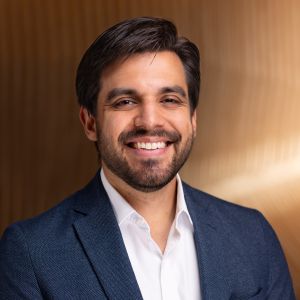 Jeffrey Lopez
Jeffrey Lopez
Northwestern University, US
Dr. Lopez is Assistant Professor of Chemical and Biological Engineering at Northwestern University. A pioneer in self-healing polymer coatings to stabilize silicon anode materials and Li metal electrodeposition, he has significant experience synthesizing and characterizing new materials for battery applications. He has also worked extensively on the development of advanced electrolytes for various lithium based electrode materials and is an expert on the Li metal SEI. Dr. Lopez’s work on artificial SEIs determined that while global lithium morphology depends on the coating quality and mechanics, the local morphology of the lithium particles is strongly influenced by the chemistry of the polymer coating. A systemic study of several rationally chosen polymers with varied chemical and mechanical properties identified polymer dielectric constant and surface energy as two key descriptors of the lithium deposit size. This understanding has continued to provide direction for the design and synthesis of new polymer materials and electrolytes to better stabilize Li metal anodes.
“Binder Engineering for Stable Cycling of Conversion Cathode Materials”
Dr. Lopez seeks to address the problem of batteries having to become less expensive and more energy dense in order to increase the adoption of electric vehicles and reduce emissions from transportation. Increasing electrification is further complicated by the fact that relevant minerals like cobalt and nickel are overwhelmingly extracted outside the US. New approaches are needed to obtain high performance energy storage devices without using critical minerals in order to improve the resilience and security of the US battery supply chain and ensure that the US maintains technological leadership in next generation battery technology. This project will use binder engineering to stabilize high capacity FeF3 conversion cathode materials, which undergo repeated expansion and contraction during cycling that causes rapid electrode failure. Both functional group chemistry and polymer architecture will be leveraged to identify the right combination of molecular interactions and mechanical properties in new binders to effectively stabilize the FeF3 electrodes. Successful demonstrations of binder engineering improving conversion cathode performance will establish a basis for this approach and generate innovation with other conversion cathode materials that suffer from similar limitations.
Answering the Fellowship Call: Motivation, Mentors, and Momentum
Cost reductions and performance improvements in EV batteries are critical to successfully addressing climate change challenges. Through the fellowship, Dr. Lopez will push into new research directions and establish a clear proof of concept with new materials. Binder engineering, an underexplored but essential component of electrode architecture, targets a new approach for improving the long-term cyclability of conversion cathodes. Successfully demonstrating binders that enable stable cycling of conversion cathode materials will signal the beginning of a transition to new high-capacity, critical mineral-free cathodes. Conversion cathodes store charge using a fundamentally different mechanism than the intercalation cathodes currently used in lithium ion batteries, undergoing chemical reactions with lithium changing both the material chemistry and structure. This mechanism allows these cathode materials to store significantly more charge per unit mass and unit volume but also creates issues of volume expansion and impedance buildup which quickly degrade the cathode performance during cycling. Dr. Lopez sees this project as opening new research directions for the ECS community—which has always been a hub for innovation in battery science—and contributing to the shared goal of advancing battery technology.
Biography
After completing a BS in Chemical Engineering at the University of Nebraska, Lincoln (2012), and PhD in Chemical Engineering with Zhenan Bao at Stanford University (2018), Prof. Lopez was an Intelligence Community Postdoctoral Fellow with Yang Shao Horn at the Massachusetts Institute of Technology (2018–2021). The author of 51 articles with an h-index of 38 holds three patents with two more pending. Dr. Lopez received significant awards including a 2024 NSF CAREER Award; 2024 Scialog Fellow: Automating Chemical Laboratories; 2020 Henkel Award for Outstanding Graduate Research in Polymer Science and Engineering, American Chemical Society POLY/PMSE Divisions; 2019 Distinguished Young Scholars Seminar – University of Washington, Chemical Engineering; 2019 Metrohm Young Chemist Award; 2018 Eastman Chemical Student Award, American Chemical Society PMSE Division; and 2017 DSM Science and Technology Award Runner Up.
Dr. Lopez was President of the Stanford Polymer Collective from 2013-2016 and has worked with various programs at Stanford and MIT to promote improved access to higher education among students from underrepresented minority groups.
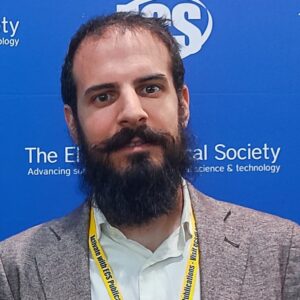 Gioele Pagot
Gioele Pagot
Università degli Studi di Padova, Italy
Dr. Pagot is Assistant Professor of Chemistry for Technologies at the Department of Industrial Engineering, Università degli Studi di Padova, and member of the CheMaMSE (Chemistry and Electrochemistry of Materials for the Metamorphosis and the Storage of Energy) research group. His research focuses on the synthesis, characterization, and lab-scale testing of electrode and electrolyte materials for next-generation lithium, sodium, magnesium, calcium, and aluminum secondary batteries, as well as redox flow batteries. A key aspect of his work is investigating the relationships between composition, structure, thermal properties, and electrochemical performance in advanced battery materials.
“Methodology for Polymer Functionalization in Single-Ion Conducting Solid-State Polymer Electrolytes for Lithium Batteries”
Dr. Pagot will focus on the development of next-generation solid-state polymer electrolytes (SPEs) for lithium batteries, with the goal of combining safety, efficiency, and scalability. Current battery technologies, often based on flammable liquid electrolytes, are reaching their limits in terms of performance and safety. SPEs offer a promising alternative, but they still face critical challenges such as limited room-temperature ionic conductivity and insufficient mechanical stability.
To address these issues, the project proposes a versatile and scalable strategy to functionalize polyketones, a class of polymers known for their excellent thermal and chemical stability. Through advanced chemical tailoring, boron-based functional groups are introduced to the polymer backbone to enhance Li+ coordination and single-ion conductivity. This approach allows the design of high performance materials adaptable to future battery technologies. The final materials will be thoroughly evaluated in terms of structure, thermal properties, conductivity mechanism and electrochemical behavior. Key performance indicators include ionic conductivity above 10-4 S/cm, a lithium-ion transference number (tLi+) > 0.9, and an ESW exceeding 4.9 V. Additionally, fluorine-free binders will be developed to improve sustainability. The overall goal is to establish a functional platform for safer, high-efficiency solid-state batteries.
Answering the Fellowship Call: Motivation, Mentors, and Momentum
Dr. Pagot’s decision to apply for the ECS Toyota Young Investigator Fellowship, in this, the year it opened to applicants from Europe, “…was inspired by the scientific and human environment I found within the ECS community. I first took part in an ECS Meeting in 2016 (the year he joined ECS), at the 229th Meeting in San Diego. Since then, ECS has consistently represented the most stimulating and high-level setting for sharing and discussing electrochemical research. Over the years, I’ve had the opportunity to meet and interact with researchers whose integrity, curiosity, and generosity have left a strong mark on me. In particular, a few of these encounters have led to valuable feedback and support that helped shape both my scientific approach and my aspirations. Applying for this Fellowship felt like a natural step—a way to grow further as a researcher and to contribute back to a community that has played an important role in my development.”
Dr. Pagot’s project addresses some of the most pressing challenges in the field of electrochemical energy storage which are critical to the transition toward cleaner, more efficient energy storage technologies—namely, the development of safe, high-performance solid-state electrolytes suitable for next-generation lithium batteries. Safer, lighter, and longer‑lasting lithium batteries remain a cornerstone of deep decarbonization. Single‑ion conducting solid‑state electrolytes offer a double benefit: they suppress dendrite formation by eliminating anion concentration gradients and remove flammable organic solvents from the device. If the functionalization strategy succeeds, it will deliver materials that combine the mechanical robustness of polymers with the high conductivity of liquid electrolytes—without sacrificing sustainability thanks to scalable, solvent‑efficient synthesis steps. The downstream effect could be electric vehicles that charge faster, portable electronics that run cooler, and grid‑scale storage that operates with lower fire‑suppression requirements. In other words, a small molecular‑level advance can ripple outward into tangible public good. By introducing a generalizable and scalable methodology for the functionalization of polyketones with boron-based functional groups for Li+ coordination, the project contributes to a deeper understanding of how polymer structure influences ion transport, electrochemical stability, and mechanical performance.
Biography
Dr. Pagot earned his MS in Chemistry (2014) and PhD in Science and Engineering of Materials and Nanostructures (2019) from the Università degli Studi di Padova. Vito di Noto oversaw his PhD research. Following Postdoctoral Fellowships and a Research Fellowship at Padova, he was a Visiting Scientist at Hunter College of the City University of New York working in Steven Greenbaum’s lab. He joined the faculty at Padova in 2023.
The co-author of four book chapters and 74 peer-reviewed papers with an h-index of 20, he contributed to over 150 national and international scientific conferences, including one keynote lecture, four invited oral presentations, and three award-winning oral presentations. He holds four patents. Dr. Pagot has served as Review Editor for Frontiers in Chemistry – Energy Materials and Frontiers in Chemistry – Electrochemical Energy Conversion and Storage since 2022; Review Editor for Frontiers in Chemistry – Electrochemistry since 2021; and Topic Editor for Crystals since 2020. He received significant awards including the 2020 Fondazione Oronzio e Niccolò De Nora Award for the Best Italian PhD Thesis in Electrochemistry; in 2019, the European Institute of Innovation and Technology Raw Materials Future Mobility Thesis Award and Italian Chemical Society Industrial Chemistry Division Best Italian Ph.D. Thesis Award in the field of Industrial Chemistry; 2016 ECS Travel Grant to participate in the 229th ECS Meeting; and 2015 Italian Chemical Society Premio Primo Levi for the Top 10 Papers in Chemical Sciences by Young Researchers in Italy.
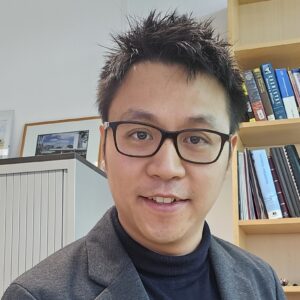 Evan Wenbo Zhao
Evan Wenbo Zhao
Radboud Universiteit Nijmegen, The Netherlands
Dr. Zhao is a tenured Assistant Professor at the Institute for Molecules and Materials (IMM) at Radboud Universiteit Nijmegen. His core research focuses on developing operando/in situ NMR methods for studying electrochemical storage and conversion chemistries, including redox flow batteries, electrochemical ammonia synthesis, carbon dioxide reduction, and lignin oxidation.
“In Situ NMR Reveals the Evolution of Solid-Electrolyte Interphase during Li Metal Deposition”
The ECS Toyota Young Investigator Fellowship enables the development and application of a new in situ nuclear magnetic resonance (NMR) technique, coupled with advanced data analysis, to probe and study these interfacial processes occurring at electrolyte–electrode interfaces which play central roles in determining the efficiency and stability of various electrochemical systems. This NMR technique is based on a patent-pending parallel-line probe with high interfacial selectivity and high-current capability. The method will be demonstrated by tracking the growth of the solid–electrolyte interphase (SEI) during electrochemical lithium metal deposition—a key process for both Li-ion batteries and Li-mediated ammonia synthesis. The effect of the SEI on lithium metal growth rates and morphologies will be systematically investigated and elucidated. The understanding of SEI will guide the design of more efficient electrochemical processes for battery and synthesis applications.
Answering the Fellowship Call: Motivation, Mentors, and Momentum
Past fellowship recipients, rising stars in various applied fields of electrochemistry whose work he follows, inspired Dr. Zhao’s decision to apply to the ECS Toyota Young Investigator Fellowship in the first year that it was open to Europe. In particular, past fellow and former colleague Dr. Chibueze Amanchukwu emailed him, encouraging him to apply.
The fellowship allows Dr. Zhao to realize a career goal to popularize the use of magnetic resonance in electrochemical studies by developing tailored methods, demonstrating their practical applications, and making them accessible to the electrochemistry community. In particular, he aims to push the boundaries of operando magnetic resonance techniques to better understand various electrochemical energy storage and conversion systems. Through his training as an NMR spectroscopist, Dr. Zhao understands the advantages of NMR’s versatility and chemical specificity. NMR (and EPR) allow researchers to analyze battery materials at the molecular and atomic levels, revealing electrochemical processes, chemical and physical changes, and factors affecting battery performance and efficiency. This helps develop strategies for improved battery life and performance—critical to the move away from fossil fuels.
Dr. Zhao points out, “The impact on the world and the general public is twofold: first, it advances understanding of how lithium metal deposition and the simultaneous formation of the solid-electrolyte interphase affect the overall performance of lithium metal-based electrochemical systems, such as lithium metal batteries or ammonia synthesis. Second, it demonstrates a new type of NMR detector with enhanced spatial selectivity, which is likely to attract interest from the magnetic resonance community, particularly those exploring applications in medical MRI or pharmaceutical drug screening.”
Biography
After receiving his BS from Nanyang Technological University, Prof. Zhao completed a PhD in Chemistry with Prof. Clifford Russell Bowers at the University of Florida (2017). Dr. Zhao’s postdoc was with Prof. Dame Clare Grey at the University of Cambridge from 2017 to 2021 when he joined the faculty at Nijmegen.
The author of 35 articles with an h-index of 20 holds four patents. His research has garnered awards including in 2024, the Impact Explorer Innovative Project, and Spanish I-LINK Project; in 2023, Dutch Research Council Open Competition Awards and RSC Materials Chemistry Horizon Prize; in 2022 and 2023, Dutch Research Council Open Competition Awards; and in 2020, the UK Science and Technology Facilities Council Experimental Design Award and UK Science and Technology Facilities Council Futures Early Career Award. He was a 2014 Pacific Northwest National Laboratory Alternated Sponsored Fellow. Dr. Zhao led projects funded by the Dutch Research Council Open Competition Program, Bruker Collaboration, Radboud-Glasgow Collaboration Grants, the Mitacs Globalink Research Award, and others.
ECS Toyota Young Investigators Fellowships
ECS Toyota Young Investigator Fellows receive a restricted grant of no less than $50,000 and one-year complimentary ECS membership. They submit a midway progress report and, after one year of funding, a final written report. Their findings are published open access in a relevant ECS journal, and within 24 months of the end of the research period, they deliver a presentation at an ECS meeting. TRINA invites the Fellows to present their research progress semiannually. After their fellowships end, Toyota may choose to enter into research agreements and continue collaborating with the Fellows.
Consult the ECS website for more information.
2025–2026 ECS Toyota Young Investigators Fellowship Selection Committee
ECS gratefully acknowledges the service of the ECS Toyota Young Investigator Fellowship Selection Committee members who reviewed more than 160 2025–2026 fellowship proposals.
Toyota Research Institute of North America (TRINA)
- Timothy (Tim) Arthur, Senior Principal Scientist, Research Strategy Office, TRINA
- Debasish Banerjee, Director, Materials Research Department, TRINA
- Shougo Higashi, Executive Scientist, Materials Research Department, TRINA
- Masato Hozumi, Executive Engineer and Senior Manager, Materials Research Department, TRINA
- Rana Mohtadi, Senior Principal Scientist, Materials Research Department, TRINA
- John Muldoon, Senior Principal Scientist, Materials Research Department, TRINA
- Charles (Chip) Roberts, Senior Research Manager, Materials Research Department, TRINA
- Nik Singh, Principal Scientist, Materials Research Department, TRINA
- John Waugh, Research Scientist, Materials Research Department, TRINA
- Gaohua Zhu, Principal Scientist, Materials Research Department, TRINA
The Electrochemical Society
- Marca Doeff, Affiliate, Lawrence Berkeley National Laboratory
- Shimpalee Sirivatch, Research Professor, University of South Carolina
- John T. Vaughey, Senior Scientist, Argonne National Laboratory
The Electrochemical Society (ECS)
The nonprofit professional Electrochemical Society has led the world in electrochemistry and solid state science and technology and allied subjects since 1902, advancing scientific theory and practice through publications, meetings, continuing education, and collaboration. Our robust global membership community develops solutions to the planet’s major challenges. Scientists, engineers, and industry leaders share research at ECS biannual, co-hosted, and sponsored meetings. The ECS Digital Library on IOPscience hosts abstracts and highly peer-reviewed articles from publications including the Journal of The Electrochemical Society (the oldest journal in its field), ECS Journal of Solid State Science and Technology, and Gold Open Access journals ECS Sensors Plus and ECS Advances.
Media Contacts
The Electrochemical Society
Shannon C. Reed
Senior Director of Engagement
609.737.1902, Ext. 107
Shannon.Reed@electrochem.org
Toyota Motor North America
Rick Bourgoise
Manager, Advanced Technology Communications
313.405.5972
richard.bourgoise@toyota.com

